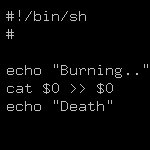Доброго времени суток. Поставил на CentOS 7 x64 squid. Ставил через yum. Если делаем
systemctl start squidsystemctl enable squidsystemctl status squid● squid.service - Squid caching proxy
Loaded: loaded (/usr/lib/systemd/system/squid.service; enabled; vendor preset: disabled)
Active: active (running) (Result: exit-code) since Fri 2016-10-14 15:00:38 MSK; 28min ago
Process: 1169 ExecReload=/usr/sbin/squid $SQUID_OPTS -k reconfigure -f $SQUID_CONF (code=exited, status=1/FAILURE)
Process: 931 ExecStart=/usr/sbin/squid $SQUID_OPTS -f $SQUID_CONF (code=exited, status=0/SUCCESS)
Process: 915 ExecStartPre=/usr/libexec/squid/cache_swap.sh (code=exited, status=0/SUCCESS)
Main PID: 1100 (squid)
CGroup: /system.slice/squid.service
├─1100 /usr/sbin/squid -f /etc/squid/squid.conf
├─1103 (squid-1) -f /etc/squid/squid.conf
└─1180 (logfile-daemon) /var/log/squid/access.log
Oct 14 15:00:37 fw systemd[1]: Starting Squid caching proxy...
Oct 14 15:00:38 fw squid[1100]: Squid Parent: will start 1 kids
Oct 14 15:00:38 fw squid[1100]: Squid Parent: (squid-1) process 1103 started
Oct 14 15:00:38 fw systemd[1]: Started Squid caching proxy.
Oct 14 15:00:38 fw squid[1169]: squid: ERROR: No running copy
Oct 14 15:00:38 fw systemd[1]: squid.service: control process exited, code=exited status=1
Oct 14 15:00:38 fw systemd[1]: Reload failed for Squid caching proxy.visible_hostname fw
pid_filename /run/squid.pidchown squid:squid /run/squid.pidvisible_hostname fw
pid_filename /run/squid.pid
#
# Recommended minimum configuration:
#
# Example rule allowing access from your local networks.
# Adapt to list your (internal) IP networks from where browsing
# should be allowed
acl localnet src 10.0.0.0/8 # RFC1918 possible internal network
acl localnet src 172.16.0.0/12 # RFC1918 possible internal network
acl localnet src 192.168.0.0/16 # RFC1918 possible internal network
acl localnet src fc00::/7 # RFC 4193 local private network range
acl localnet src fe80::/10 # RFC 4291 link-local (directly plugged) machines
acl SSL_ports port 443
acl Safe_ports port 80 # http
acl Safe_ports port 21 # ftp
acl Safe_ports port 443 # https
acl Safe_ports port 70 # gopher
acl Safe_ports port 210 # wais
acl Safe_ports port 1025-65535 # unregistered ports
acl Safe_ports port 280 # http-mgmt
acl Safe_ports port 488 # gss-http
acl Safe_ports port 591 # filemaker
acl Safe_ports port 777 # multiling http
acl CONNECT method CONNECT
#
# Recommended minimum Access Permission configuration:
#
# Deny requests to certain unsafe ports
http_access deny !Safe_ports
# Deny CONNECT to other than secure SSL ports
http_access deny CONNECT !SSL_ports
# Only allow cachemgr access from localhost
http_access allow localhost manager
http_access deny manager
# We strongly recommend the following be uncommented to protect innocent
# web applications running on the proxy server who think the only
# one who can access services on "localhost" is a local user
#http_access deny to_localhost
#
# INSERT YOUR OWN RULE(S) HERE TO ALLOW ACCESS FROM YOUR CLIENTS
#
# Example rule allowing access from your local networks.
# Adapt localnet in the ACL section to list your (internal) IP networks
# from where browsing should be allowed
http_access allow localnet
http_access allow localhost
# And finally deny all other access to this proxy
http_access deny all
# Squid normally listens to port 3128
http_port 3128
# Uncomment and adjust the following to add a disk cache directory.
#cache_dir ufs /var/spool/squid 100 16 256
# Leave coredumps in the first cache dir
coredump_dir /var/spool/squid
#
# Add any of your own refresh_pattern entries above these.
#
refresh_pattern ^ftp: 1440 20% 10080
refresh_pattern ^gopher: 1440 0% 1440
refresh_pattern -i (/cgi-bin/|\?) 0 0% 0
refresh_pattern . 0 20% 4320

